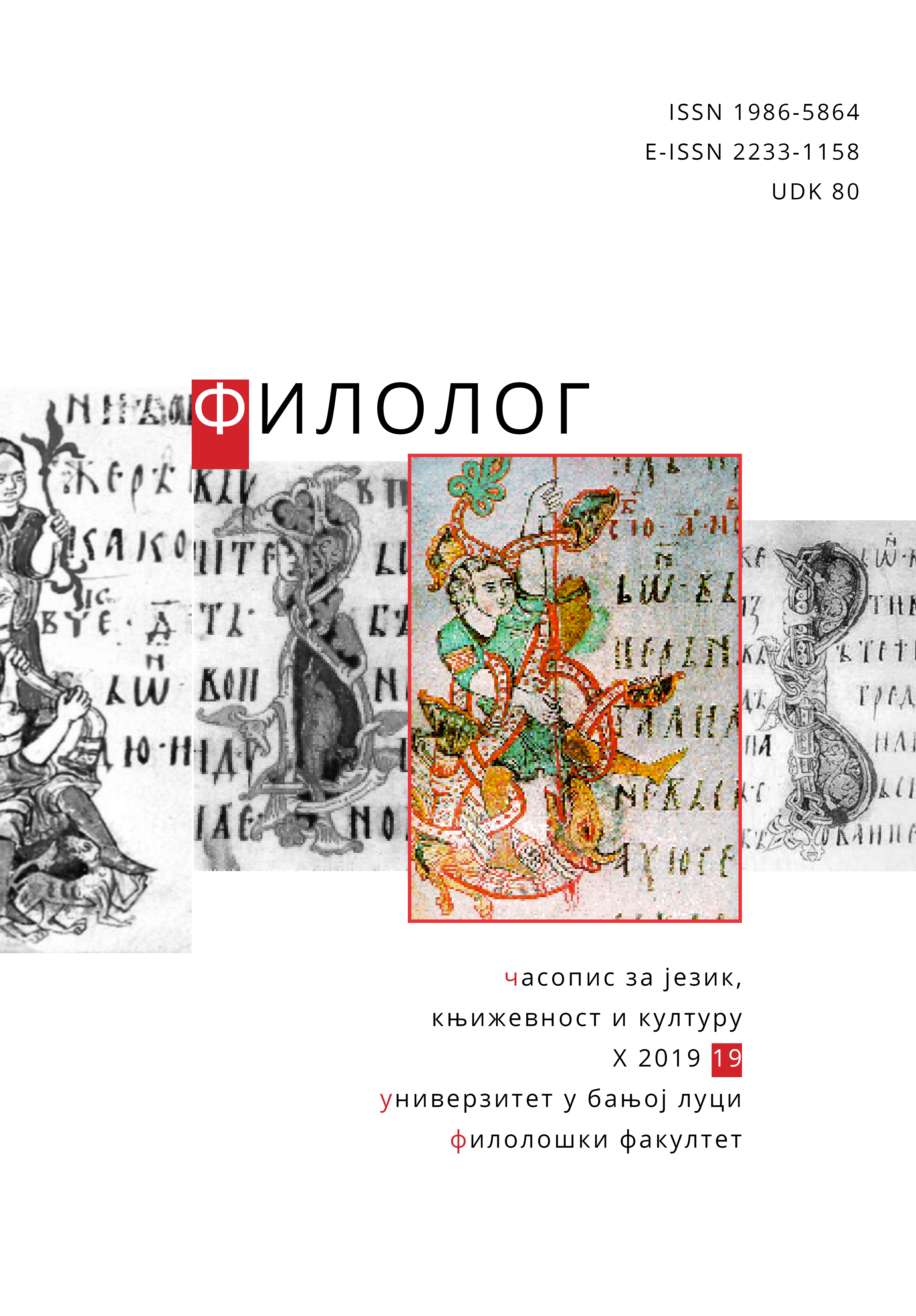Homophobia in Serbian Online Discourse: The Case of the 2016 Belgrade Pride Parade
Homophobia in Serbian Online Discourse: The Case of the 2016 Belgrade Pride Parade
Author(s): Nataša D. VučenovićSubject(s): Civil Society, Sociolinguistics, Philology, ICT Information and Communications Technologies
Published by: Филолошки факултет Универзитета у Бањој Луци
Keywords: homophobia; homophobic discourse; public discourse; ideology; ideological discourse strategies;
Summary/Abstract: The Belgrade Pride Parade has been associated with numerous acts of violence and vandalism since the first gay march in 2001. Although it seems that in the last couple of years the attitude towards the parade and human rights in Serbia has improved, the public discourse remains deeply imbued in national myths and stereotypes that instigate homophobia and contribute to the perception of homosexuality as deviance. This study examined public reactions to the 2016 Belgrade Pride Parade in order to outline how the Pride Parade, and by extension homosexuals and homosexuality, are viewed and represented by the commenters on some of the most visited online multimedia portals in Serbia. The online comments (approximately 500 comments) were considered as a web-based corpus and observed and analysed from a perspective of Critical Discourse Analysis (CDA). The use of online comments as corpus in this study is encouraged by multidisciplinary approaches and studies. Suzanne R. McMillen, for instance, shows in her research that online comments represent important spaces for debate and discussion and that they are an important form of public expression. They are also, according to the author (McMillen, 2013), reliable and trustworthy sources because the anonymous commenters are less inhibited and tend to be more honest while communicating online. Van Dijk’s framework adopted from Politics, ideology and discourse (van Dijk, 2006) was used to detect discursive structures within the online comments in an attempt to discover the underlying ideologies. The macro strategies of ''positive self-representation'' and ''negative other- representation'' plus the other 9 specific strategies were used for the evaluation of attitudes and opinions on the Pride Parade, homosexuals and homosexuality. The study ultimately showed how homophobic speech in the public discourse was distorted and presented as ''non-ideological common sense'' (Fairclough, 1995).
Journal: Филолог – часопис за језик, књижевност и културу
- Issue Year: 2019
- Issue No: 19
- Page Range: 82-100
- Page Count: 19
- Language: English

